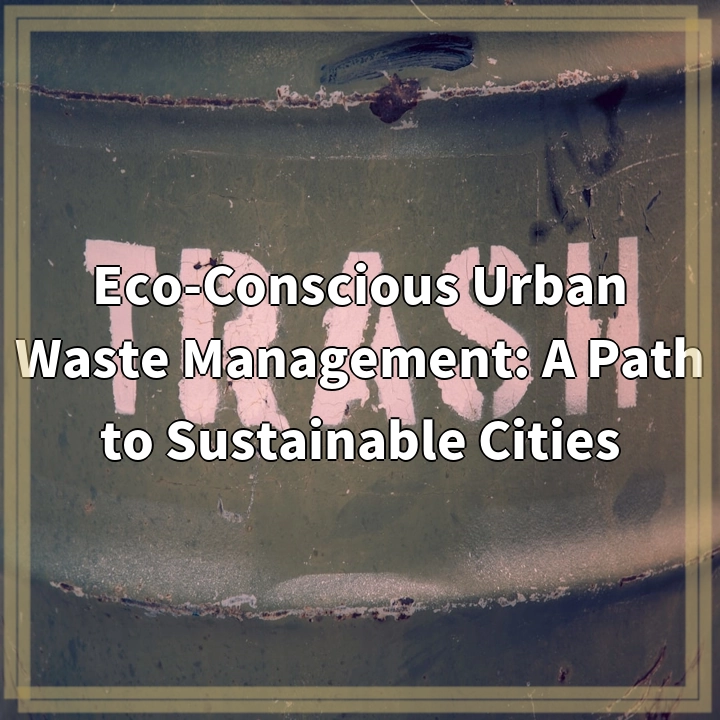
What is Eco-Conscious Urban Waste Management?
Eco-conscious urban waste management refers to the implementation of sustainable practices and strategies in handling and disposing of waste in urban areas. It involves adopting environmentally friendly approaches to minimize waste generation, maximize recycling and reuse, and reduce the overall impact on the environment.
The Real-World Problems Associated with Eco-Conscious Urban Waste Management
While eco-conscious urban waste management offers numerous benefits, there are also several real-world challenges that need to be addressed:
1. Limited Infrastructure and Resources
Lack of adequate infrastructure and resources can hinder the implementation of eco-conscious waste management practices in urban areas. Insufficient recycling facilities, composting sites, and waste collection systems can make it difficult to effectively manage and divert waste from landfills.
2. Rapid Urbanization and Population Growth
The ever-increasing population and rapid urbanization exacerbate the waste management challenges in cities. As more people migrate to urban areas, the volume of waste generated also increases, putting additional stress on existing waste management systems.
3. Lack of Awareness and Education
Inadequate public awareness and education about the importance of eco-conscious waste management can hinder citizens’ active participation. Many people may not know how to properly segregate and dispose of their waste, leading to contamination and reduced efficiency of recycling and composting initiatives.
4. Informal Waste Sector
In many cities, an informal waste sector, involving waste pickers and scavengers, plays a significant role in waste management. While their contribution is valuable, integrating them into formal waste management systems can be challenging, requiring supportive policies and infrastructure.
5. Technological and Financial Barriers
Implementing advanced waste management technologies and infrastructure can be financially burdensome for many cities, particularly those in developing countries. Lack of funding and technical expertise may impede the adoption of eco-conscious waste management practices.

Solutions for Eco-Conscious Urban Waste Management
Addressing the challenges associated with eco-conscious urban waste management requires a multidimensional approach, involving various stakeholders and strategies:
1. Developing Infrastructure and Allocating Resources
Investing in the development of waste management infrastructure, such as recycling facilities and waste collection systems, is crucial. Local governments and authorities need to allocate sufficient resources to support eco-conscious waste management practices in urban areas.
2. Planning for Sustainable Urban Growth
Urban planning should incorporate sustainable waste management strategies from the outset. This includes designing cities with waste reduction in mind, providing ample space for recycling centers, and implementing efficient waste collection systems to accommodate future population growth.
3. Educating and Raising Awareness
Public awareness campaigns and educational initiatives are vital to promote the importance of eco-conscious waste management. Providing information on waste segregation, recycling techniques, and the environmental benefits can encourage individuals to actively participate and adopt sustainable waste practices.
4. Integrating the Informal Waste Sector
Efforts should be made to integrate the informal waste sector into formal waste management systems. By providing training, legal recognition, and access to resources and technology, these waste pickers and scavengers can play a more effective role in eco-conscious urban waste management.
5. Investing in Technological Innovations
Exploring and investing in innovative waste management technologies can significantly enhance effectiveness and efficiency. Implementing advanced techniques such as organic waste composting, waste-to-energy systems, and smart waste management can contribute to sustainable urban waste practices.















